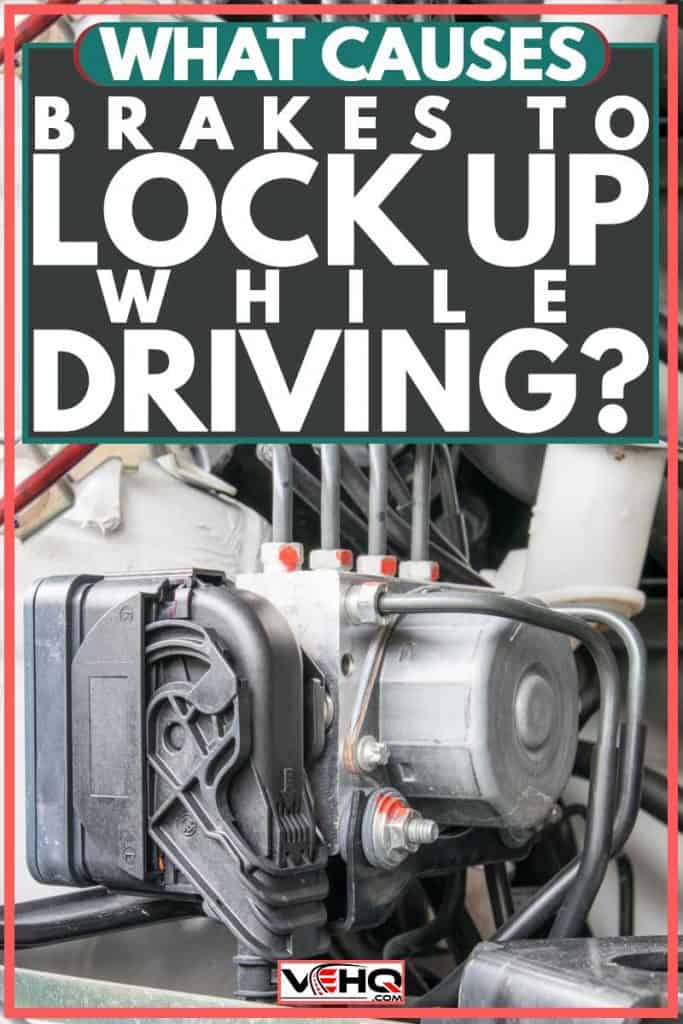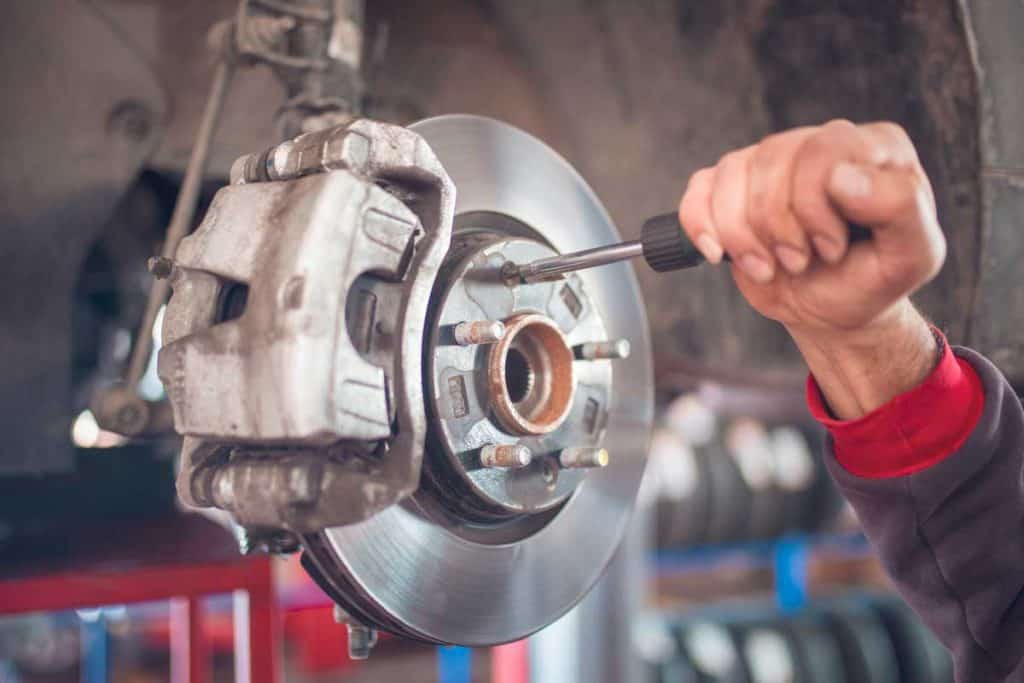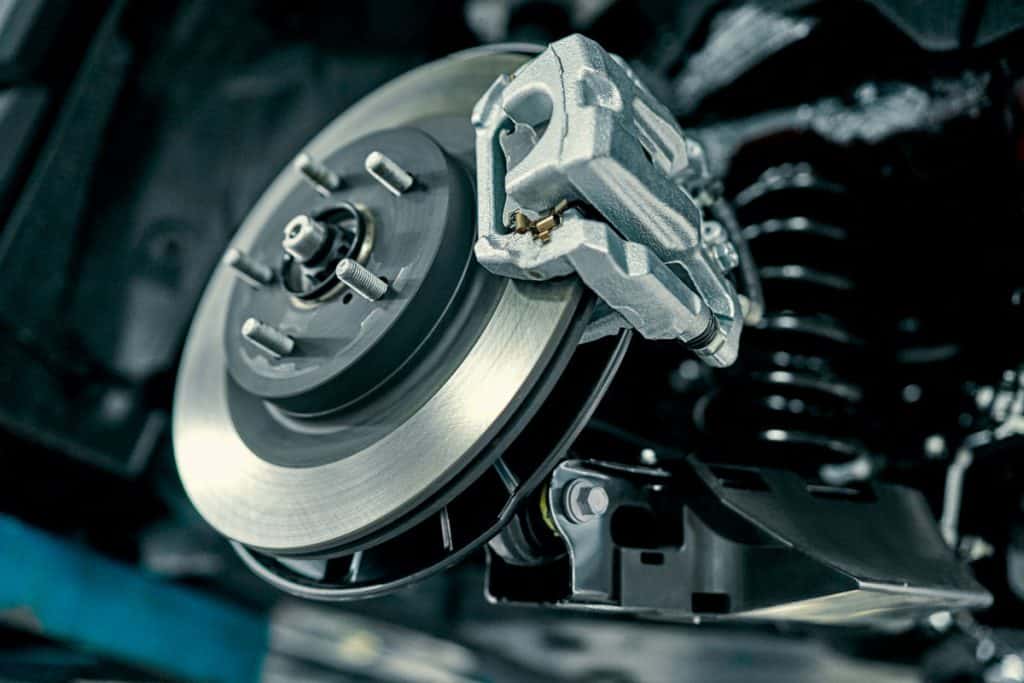 Driving a car is something most of us take for granted -- until we have some sort of issue. This is especially true when we have a problem with our brakes. If you have ever felt your brakes lock up while you are driving, you no doubt have wondered what happened. This experience can be frightening, but we have done some research to identify some potential causes of this problem.
Driving a car is something most of us take for granted -- until we have some sort of issue. This is especially true when we have a problem with our brakes. If you have ever felt your brakes lock up while you are driving, you no doubt have wondered what happened. This experience can be frightening, but we have done some research to identify some potential causes of this problem.
There are several possibilities why brakes may lock up. Some of the most common are:
- Issues with your car's ABS (Anti-Lock Braking System) computer or system
- Caliper problems
- Cylinder issues
- Issues with brake fluid - leaks in the brake line, not enough fluid, etc.
- Brake overheating
We will talk a bit more in-depth about each of these possibilities and what action a mechanic may take to help resolve them. Keep reading to find out what causes brakes to lock up and what action you should take if you find yourself dealing with this scenario.
Please keep in mind that this post is not a substitute for professional assistance from a certified mechanic. Brakes are one of the car's most important safety features, and an experienced, knowledgeable brake technician should address problems with them.
Reasons Your Brakes May Lock Up
Today's vehicles are very complex. They incorporate computer systems to help regulate proper function. From time to time, issues with these systems may occur.
ABS
When the ABS system experiences issues, it can cause your car's brakes to lock up. In some vehicles, an ABS icon may light up in the dash. This indicates a potential problem with your car's brakes. If this light appears, do not ignore it. Take your vehicle to a dealership or a mechanic to have a diagnostic check run on the car. The computer system can be checked for specific codes that will detail the issue. A technician will be able to use these codes to determine the proper course of action to resolve the issue.
Brake Calipers
If the ABS itself is not the cause of the problem, the lock-up may be the result of issues related to the calipers. Like most everything else in your car, several components work together to make your brakes work correctly. Calipers are responsible for pushing the brake pads onto the rotors to slow the vehicle. These calipers move on slide pins and are pushed by hydraulic fluid and caliper pistons into position on the rotors.
If these pins or pistons are warped, damaged, or otherwise negatively affected, they can cause the brakes to remain locked. A mechanic will likely inspect your calipers and their components to find out whether they are defective. If so, he or she will replace them.
Hydraulic System
Another potential cause could be an issue with the brakes' hydraulic system. Pushing the brake pedal releases hydraulic fluid (brake fluid) to operate your car's brakes. If your brake fluid is low or if there are leaks in the line, your brakes may lock up.
One of the first things a mechanic or brake technician may check is the level of brake fluid in the car. If it is low, they will likely inspect the master cylinder for valve and seal problems or inspect the lines for leaks. If there are problems with the master cylinder (which essentially regulates the release of brake fluid), your mechanic may recommend that you replace it.
Brake Overheating
Finally, brake overheating can potentially cause your brakes to lock up. Brake overheating occurs as a result of too much friction. This friction can cause tremendous damage. The brakes can get so hot that they meld to the disc. This overheating can happen if your brake pads are too worn.
Bad discs can also lead to overheating, as can low hydraulic fluid. When you take your car to have its brakes examined, the mechanic will take the tires off the car to look at the brakes. Evidence of overheating will be quickly apparent. He or she then will try to figure out the cause of the overheating and will make a recommendation based on what is discovered.
What Does It Mean For Your Brakes To Lock Up?
 Now that we have discussed what may cause brakes to lock up, it's crucial to understand precisely what this means. When you push the brake pedal, the brake system engages to slow or stop your vehicle. With ABS, your brakes should release when you let off of the pedal. However, if there is an issue like we have mentioned above, your brakes may not function properly.
Now that we have discussed what may cause brakes to lock up, it's crucial to understand precisely what this means. When you push the brake pedal, the brake system engages to slow or stop your vehicle. With ABS, your brakes should release when you let off of the pedal. However, if there is an issue like we have mentioned above, your brakes may not function properly.
Brakes that lock up remain engaged even if they shouldn't be. So, if you are trying to slow down and your brakes lock up, you could potentially come to an unexpected (and out of control) stop. ABS was designed to prevent this from occurring, but as we have seen, there are instances when problems with the system could cause it to happen anyway.
How Do I Know If My Brakes Are Locked Up?
There are a few ways that you can tell if your brakes have locked up. Unfortunately, the most obvious way to know is if the problem occurs while you are driving. You may feel the car swerve to the left or right, or the back end may begin to fishtail. This is undoubtedly a frightening and dangerous set of circumstances.
Another sign that your brakes have locked up is if you feel resistance as you are driving. When your brakes are locked, they will continue to apply pressure to the rotors and make it difficult for your wheels to operate normally. This can cause stress on your engine and, if ignored, problems for your transmission. It can also lead to severe issues as brake overheating may result from the additional friction.
A third indicator that your brakes are locked up could be unfamiliar noises. Grinding, squeaking, or rubbing could all be signs that your brakes are engaged even when they shouldn't be.
What Should You Do When Your Brakes Lock Up?
 If your brakes lock up while you are driving, you should push on the brake pedal repeatedly until you can stop. If you are driving slower than 40 mph, you can also try to use the parking brake to help you stop. You should try to get your car off the road as soon as possible.
If your brakes lock up while you are driving, you should push on the brake pedal repeatedly until you can stop. If you are driving slower than 40 mph, you can also try to use the parking brake to help you stop. You should try to get your car off the road as soon as possible.
If you notice the issue before it becomes an emergency, do not ignore it. Take your car to the dealership or a mechanic as soon as you can. Problems with brakes should never be minimized or delayed.
How Do You Release A Locked Up Brake?
The best way to release a locked-up brake is to have your mechanic take care of it. He or she will be able to determine and address the cause. And, best of all, they will be able to do it safely and correctly.
But, if your brakes have locked up and you are in a safe place, you could try jacking the car up and attempting to turn the wheels by hand. If all of the wheels are locked, the problem is likely related to the master cylinder. In this case, you would still probably need the assistance of a mechanic. If only one wheel is affected, it could be due to a blocked fluid line. Again, however, you should still consult a mechanic to confirm the issue and resolve the problem.
In short, you can attempt to diagnose and resolve the problem yourself, but the odds are good that you may do more harm than good and cost yourself more money in the long run. On top of that, you may also jeopardize your safety, the safety of your family, or the safety of other drivers on the road. Brake problems are always best addressed by a professional, certified mechanic.
If you have noticed other issues with your car, specifically strange noises, and wonder if they may be related to your brakes, take a look at some of our other blog posts:
Grinding Noise When Driving Slow -- What Could Be Wrong?
Rubbing Noise From Front Wheel When Driving -- What Could It Mean?
And it never hurts to say this again -
No online advice can ever replace that of a qualified mechanic. Please stay safe and keep others on the road safe as well. If you suspect a malfunction in your car, talk to a qualified professional in the auto repair shop.
